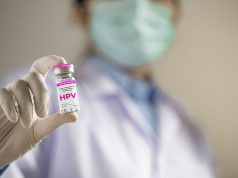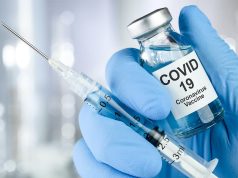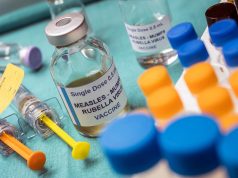Considerable variation seen in magnitude of antibody response, from 5 to 7,882 AU/mL, following two doses of mRNA COVID-19 vaccine
FRIDAY, July 2, 2021 (HealthDay News) — Patients with multiple myeloma (MM) mount a highly variable antibody response after receipt of a two-dose mRNA COVID-19 vaccination regimen, according to a study published online June 28 in Cancer Cell.
Oliver Van Oekelen, from the Icahn School of Medicine at Mount Sinai in New York City, and colleagues analyzed severe acute respiratory syndrome coronavirus 2 (SARS-CoV-2) spike-binding immunoglobulin (Ig)G antibody levels in 320 MM patients who received COVID-19 vaccinations (69.1 percent BNT162b2; 27.2 percent mRNA-1273; 3.8 percent unknown) in early 2021.
Two hundred sixty of the participants had SARS-CoV-2 spike-binding IgG antibody levels measured at least 10 days after receipt of the second vaccine dose. The researchers found that 84.2 percent of the 260 participants mounted measurable SARS-CoV-2 spike-binding IgG antibody levels, with considerable variation in magnitude (median, 149 AU/mL; range, 5 to 7,882 AU/mL); 15.8 percent had values below the level of detection. In a control group of 67 matched health care workers, vaccine-induced antibody responses were more homogenous (median, 300 AU/mL; range, 21 to 3,335 AU/mL); none had antibody levels below the level of detection. There were 10 cases of COVID-19 in MM patients after mRNA vaccination (seven after one dose; three after both doses). Six patients received outpatient treatment and four required subsequent hospitalization.
“Our findings underscore the need for routine serological monitoring of MM patients following COVID-19 vaccination to allow for personalized risk reduction measures in the context of relaxing mask and social distancing mandates for vaccinated individuals,” the authors write.
Several authors disclosed financial ties to the biopharmaceutical industry; the Icahn School of Medicine at Mount Sinai has filed patent applications relating to SARS-CoV-2 serological assays and Newcastle disease virus-based SARS-CoV-2 vaccines, listing one coauthor as inventor.
Copyright © 2021 HealthDay. All rights reserved.








